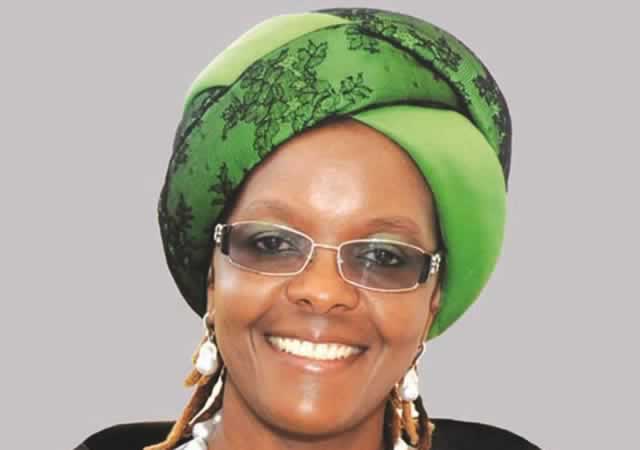Winning with the people

Reason Wafawarova on Thursday
IN Africa our politicians generally have this uncongenial disposition that says winning an election is simply a matter of party affiliation, and this is not without basis when one looks at the effect of the protest vote.
The greatest calamity of a vote won on the backdrop of political affiliation is mediocrity, and Zimbabwe is one country critically afflicted with the pandemic of leadership inadequacy, except at the level of the President.
Our Cabinet and Legislature have housed some of the most mundane characters ever to grace the field of politics.
When the electorate votes to express what they do not want to see, what they want to see will often remain terribly unresolved, and this is what the protest vote has given to us Zimbabweans since the beginning of the millennium.
Others simply vote on the basis of political affiliation, and this feeble-mindedness has allowed impertinent characters to benefit from a notorious tradition of patronage where superior leaders can simply impose unpopular candidates with impunity.
In the 2008 election, the two leading political parties lost at least 10 parliamentary seats each as imposed candidates faced the backlash from a fed up electorate.
In 2013 Zanu-PF was a little wiser, but MDC-T continued to impose candidates on the electorate, including Simba Makoni, a renegade former Zanu-PF stalwart who clearly suffers irrefutable delusions of grandeur. Of course he lost the seat.
Zanu-PF has this habit of angelising its leadership, and this tradition has given some Politburo members undeserved and inexplicable powers that come without merit or integrity.
In the last two weeks we have witnessed a spectacular divergence from this tradition, as the First Lady openly derided and exposed some leaders over alleged acts of corruption, vote buying, ineptness and factionalism.
Some were attacked in riddles, while others were named by name, yet others were openly humiliated before fully packed rallies for various misdeeds like lying, misleading, or in the case of poor Temba Mliswa, cheap politicking against MDC supporters.
Zimbabwe lacks in great deal politicians with the quality of honesty.
Our politicians seem to know well that honesty makes someone vulnerable, and that is why they choose the path of lies and cheating.
Without honest leadership, the country inevitably suffers characterless leadership, credibility crisis, and the people find it next to impossible to trust their own leadership.
In her debut entry into mainstream politics, the First Lady Amai Grace Mugabe seems to have realised the importance of compassion in leadership, although it can be argued that hailing from a background of running an orphanage, the attribute is not a surprise.
She has been talking a lot on behalf of the poor and the vulnerable.
Many of our politicians breathtakingly lack the humane quality of understanding the suffering of others, and this precisely explains the unmitigated prevalence of corruption — something that was central in the ten speeches delivered by the First Lady on her nationwide tour. We all know that we have egregious corruption in the country, and that is why the speeches resonated so well with the listeners.
Once upon a time, this country boasted of leadership of outstanding integrity, but today adherence to moral and ethical principles is quite alien to our body politic across the divide. This is why the local car assembling industry last serviced our executive and government departments way back in the 80s, and now our parliamentarians can openly go to war over the use of locally assembled vehicles.
Confidence is one quality of political leadership that must define a good leader. Who among our leaders can articulate the economic blueprint Zim-Asset with confidence? We do not seem to see that faith and belief in one’s capacity when we listen to our various political leaders.
What Zimbabwe needs right now is confidence on the way forward, and without a confident leadership there simply is no hope on the part of our people.
We are a people that are coming from an acute era of polarity, and what we need now as a nation is a leadership with the flexibility to be able to find common ground between our peoples across the political divide. Mudslinging, intolerance, militancy, hate speech, and such lawlessness as recently advocated for by Prof Lovemore Madhuku will not bring good leadership for Zimbabweans. Any darn fool can make things complicated, but it takes men and women of honour to build a nation.
It is quite hard to identify honesty, compassion, integrity, confidence or flexibility in political leaders like Professor Lovemore Madhuku, although it is quite easy to detect his fluent command of intellectual knowledge.
What Zimbabweans need to do is to identify real leadership, and as a people we must begin to identify merit as a prerequisite for political leadership. The prevailing factional wars do not in any way provide the country with meritorious leadership, and any leadership emerging from the factional fighting in either Zanu-PF or the MDC formations is unlikely to be helpful in solving the dire problems affecting the common Zimbabwean today.
In identifying real leadership, Zimbabweans must not pay attention to the claims put forward by people professing to be our capable leaders. We must not focus on the preached credentials, be they historical, academic, or democratic.
We must not worry much about the titles of people who want to be our leaders; otherwise we become like our abused colleagues in some religious quarters, who for mere self-awarded titles by their unscrupulous leaders are manipulated to do such bizarre things like grazing grass, or drinking toxic substances.
What we must check for in a leader is influence. The greatest asset in President Mugabe’s lengthy political career is influence, not necessarily shrewdness, as some analysts would choose to believe.
Proof of leadership is obviously found in followers, and that is precisely why we believe elections to be the arbiter of public judgment. When a leader with influence speaks people listen, when he makes a suggestion people respect his or her opinion, and when he takes the lead people follow.
The first split of the MDC in 2005 was a clear indication that the party leader’s influence was waning. He spoke on whether or not to take part in Senate elections, and many did not listen, he made a suggestion and his suggestion was shot down, he tried to take the lead and the party split into two. For the splinter group that went with party leader Morgan Tsvangirai, the same cycle repeated itself after the July 2013 election.
The only true measure of leadership is influence, and this is influence over followers, not exactly media influence, or some other synergies with people external.
When one is a true leader, they do not need to profess to be one. As Margret Thatcher once said: “Being in power is like being a lady. If you have to tell people you are, you aren’t.”
The person in charge is not necessarily identified by position or title. I held no high position nor title when I joined the Youth Development Department in 2001, with a defined mandate to help set up the National Youth Service program, and when I left the Ministry in 2004 I still held neither high position nor title. However, those who were part of that program in the period mentioned would perhaps testify on what kind of influence I had over virtually everything the program was. Many times those with titles and positions had to rely on my humble office in order to have influence over all others.
It is important to establish why people emerge as leaders while others cannot influence people no matter how hard they may try.
Influence has something to do with the inner person — the attribute we often call character. People can sense the depth of one’s character or lack of it, and if there is one thing that deception will not get away with, it is character.
A true leader does not wish to dupe or cheat his or her way into power. A true leader has deep relationships with followers. True leadership survives on synergies with the various grassroots structures. A leader who studies an election more than he studies the people around him and their needs is simply a politician, not a political leader.
One aspect that has earned President Mugabe respect among his supporters over the years is knowledge. A true leader needs a grasp of facts, an understanding of dynamic factors and policy frameworks, and a vision for the future. The Zimbabwean leader does articulate himself impressively over these matters.
However, knowledge on its own cannot make someone a good leader, but without knowledge it is virtually impossible to become one.
Rightly or wrongly, Morgan Tsvangirai has been accused by both his foes and colleagues of lacking the required knowledge for good leadership. In order to lead effectively one needs to do a lot of homework and research about the people they intent to lead.
Whoever will one day succeed President Mugabe, it is hard to believe that the person will match the veteran leader’s intuition. The man has exceptional abilities to deal with numerous and complex intangibles, including the current raging succession politics. Intuition is one vital attribute for good leadership, and not many people are blessed with this idiosyncrasy.
Of course experience is handy in encouraging voters to give one a chance to prove themselves, and that is why we had people like Nkosana Moyo called into cabinet in 2000.
But experience in and of itself is no guarantee for either credibility or success. When Nkosana Moyo bolted out of politics for familiar territory, the appointer President Mugabe said the leadership he wanted in his Cabinet was “for real man,” and not cowards who run for cover at the slightest of challenges.
Like experience past successes are good since people tend to want the impressiveness of a sound track record. However past successes in themselves are no guarantee for good leadership, and that is why wartime achievements so proudly flouted by some ZANU-PF politicians cannot in and of themselves guarantee Zimbabweans of good leadership.
People want ability. They want to know if a leader can take them to ultimate victory. The moment people start doubting one’s ability to deliver, they will simply stop listening and following.
Politics like religion is voluntary, and subsequently leadership comes without leverage. In the military one uses force and rank, and they can simply sent the insubordinate person for punishment. The same goes for the corporate sector, where people simply comply for things like promotion or their wages.
In politics one needs influence, and even in cases where intimidation can be sited as the cause for support, one cannot manage to intimidate an entire nation without some considerable measure of influence, perhaps in this case abused for one reason or the other.
The First Lady has publicly declared that she has the requisite influence to take part in Zimbabwe’s political leadership, and we have to wait and see the substance and depth of this influence.
Zimbabwe we are one and together we will overcome. It is homeland or death!!
REASON WAFAWAROVA is a political writer based in SYDNEY, Australia.










Comments